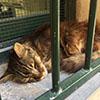Show me where it hurts.
By calamityschildNovember 6, 2015 - 16:46

See rough draft: /oneworld/changing-our-story-2015/damage-renewal-and-purity
Serendip is an independent site partnering with faculty at multiple colleges and universities around the world. Happy exploring!

See rough draft: /oneworld/changing-our-story-2015/damage-renewal-and-purity

First Draft: /oneworld/changing-our-story-2015/environment-humans

Exotic Eastern Religions?

Environment and Identity in “All Over Creation”

What happens when you cross potatoes and satellites?

In my rough draft of this essay, I picked out some quotes from Momoko in All Over Creation. My biggest question about Momoko was why she is a secondary character who is not granted any narration, while her husband, daughter, and other more vocal characters were. I used that question to ask more specific ones in the context of the quotes I found, which led me to realize that Momoko has some wisdom for the others, relayed in the terms of plants and flowers. From there, I saw just how important Momoko is to those around her, even if they might not realize it. Link to draft: /oneworld/changing-our-story-2015/momoko-quiet-force

Aayzah Mirza
Paper 6(final)
November 6, 2015


Nature, economy and identity revision
November 6th, 2015
The story begins with the description of the earth.
“It starts with the earth. How can it not? Imagine the planet like a spirit peach, whose pit forms the core, whose flesh its mantle, and whose fuzzy skin its crust- no, that doesn’t do justice to the crust, which is, after all, where all of like takes place. The earth’s crust must be more like the rind of the orange, thicker and more durable, quite unlike the thin skin of a bruisable peach. Or is it? Funny, how you never think to wonder.”(p.3)

There is a complex, yet undeniable relationship between environment and identity. Every aspect of one’s identity has been molded by the environments they have resided in. In All Over Creation, Ruth Ozeki deliberately lays out an elaborate web of almost inconceivable connections between her characters and environments to convey the importance of the relationship between environment and identity. In All Over Creation, Ozeki answers the fundamental question, “What makes me, me?” by exhibiting the dependency of individual identity on environment.